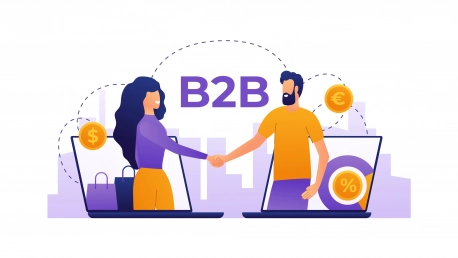In today’s fast-paced world, Artificial Intelligence (AI) is a game-changer in the B2B SaaS industry. Organizations around the world are embracing AI’s capabilities to improve their operations, sharpen their decision-making processes, and unlock growth at unprecedented levels. The role of AI in this sector is multifaceted, featuring the use of intelligent automation, advanced analytics, and new heights of customization and efficiency.AI’s impact is profound, going beyond mere task automation. It is driving companies toward a future filled with possibilities, optimizing how businesses function. For B2B SaaS firms, embracing AI means staying ahead in a competitive market by offering smarter solutions that cater to evolving business needs. This integration of AI into business practices is setting a new bar for innovation and performance, revolutionizing how companies serve their clients and achieve their goals.
Embracing AI for Enhanced Lead Generation
Within the dynamic world of B2B SaaS, AI’s advanced data analysis capabilities have revolutionized the way companies approach lead generation. By effectively mining and interpreting large datasets, AI algorithms can now predict which prospects are more likely to convert, thereby empowering sales teams to target their efforts more effectively and efficiently. From understanding subtle buying signals to forecasting industry trends, AI’s predictive capabilities have become indispensable in crafting a lead generation strategy that is both targeted and agile.In the real-world application of these technologies, companies like Salesforce have integrated AI into their CRM platforms, allowing businesses to pinpoint high-value leads and tailor their outreach accordingly. Such strategic deployment of AI-powered tools has resulted in a measurable uptick in conversion rates and a more streamlined sales process, making AI not just a luxury but a necessity in the competitive realm of B2B SaaS lead generation.
Predictive Analytics: The Sales Forecasting Gamechanger
The predictive prowess of AI extends far beyond lead generation, playing a pivotal role in forecasting future sales and understanding evolving customer preferences. Predictive analytics empowers business leaders to make data-backed decisions, ensuring that they are not only reacting to current market conditions but also proactively shaping their strategies to meet the demands of the future. This form of AI analytics can unearth hidden patterns, forecast potential churn, and suggest actionable growth strategies.B2B SaaS companies like HubSpot are harnessing predictive analytics to anticipate customer behavior, tailor their marketing efforts, and, crucially, allocate resources more effectively. By leveraging AI’s ability to analyze and learn from historical data, such businesses find themselves better equipped to navigate the ever-changing tides of market demands and customer needs, allowing them to maintain a compelling edge over their competitors.
Streamlining Customer Support with AI Chatbots
As customer expectations for quick and accurate support continue to rise, AI-powered chatbots have become an integral aspect of customer service within the B2B SaaS industry. These AI systems provide instant, round-the-clock assistance and are designed to resolve inquiries with precision and intelligence that rivals human interaction. Their ability to manage a multitude of customer service tasks simultaneously not only enhances the customer experience but also frees human agents to focus on complex issues that require a personal touch.Organizations utilizing AI in customer support have observed significant improvements in efficiency and customer satisfaction. Amazon’s AWS employs AI chatbots that can handle vast volumes of customer inquiries, reducing wait times and improving overall service quality. This shows that AI chatbots have gone from a novel innovation to an expected and critical component of any forward-thinking customer support strategy.
Personalized Product Development Through AI Insights
By scrutinizing extensive datasets, AI technologies enable B2B SaaS enterprises to delve deeper into the user experience, tailoring products and features to the individual needs and behaviors of their customers. This personalized approach not only satisfies customers but also positions products more competitively in the market. AI’s capacity to analyze user interactions on an unprecedented scale means that product development teams can now identify and act upon trends and preferences much faster than ever before.Success stories abound, with companies like Netflix using AI to drive their recommendation engines to new heights of personalization, directly influencing their product development strategies. Such AI-infused product development results in offerings that resonate on a more personal level with users, fostering loyalty and driving long-term success.
The Rise of Intelligent Automation in SaaS
AI-driven intelligent automation has the power to transform mere efficiency into proactive business judgment. By automating not just tasks but entire processes, B2B SaaS companies are instigating a new wave of operational excellence. This goes beyond simple task completion, as AI can anticipate needs, schedule operations, and preemptively solve problems before they escalate, creating a seamless business environment.The impacts on productivity and operations management are profound, with organizations like Zapier enabling cross-application automation that streamlines workflows across a vast array of SaaS products. It is this kind of intelligent automation that empowers businesses to allocate human resources to strategic thinking and creativity, pushing the boundaries of innovation ever forward.
Better Decision Making with Actionable AI Insights
AI has transformed from a mere collector of data into an intelligent interpreter, offering rich insights that empower leaders to make informed, strategic decisions. By identifying significant patterns and predictive insights from vast data sets, AI supports effective decision-making that can drive enhanced business performance, boost customer satisfaction, and foster accelerated organizational growth.Examples of AI’s impact can be seen with IBM Watson, which seamlessly integrates into business intelligence frameworks. Here, AI-generated insights dictate strategic moves such as product launches and market entry, profoundly influencing the B2B SaaS sector. Companies that adopt a data-centric approach are leveraging AI to gain a competitive edge, as it enables them to advance confidently based on data-backed strategies.Ultimately, AI’s application in business intelligence converts raw data into a foundation for actionable strategy, giving businesses the upper hand in a data-driven economy. The integration of AI in decision-making processes heralds a new era where data analytics is not just a source of information, but a cornerstone of strategic business growth.
Shaping the Future: AI Trends in B2B SaaS
AI’s evolution within the B2B SaaS industry continues at a breakneck pace, with new trends constantly emerging. Hyper-personalization and sophisticated predictive analytics are just the beginning; the future promises even more nuanced and predictive capabilities. As such, ethical considerations and the importance of human-AI synergy are becoming increasingly important. Companies are exploring ways to use AI responsibly while ensuring that human intelligence and creativity remain at the heart of innovation.Anticipating where AI will take the B2B SaaS industry next is both exhilarating and challenging. Innovations such as autonomous business intelligence and AI-driven dynamic pricing models are on the horizon. This future, abundant with possibilities, is a testament to the transformative power of AI and emphasizes the need for companies to remain adaptable and ethical as they navigate the digital landscape.
Implementation Strategies for AI in B2B SaaS
Savvy implementation of AI in B2B SaaS demands a strategic approach, underpinned by clear business objectives and precise performance indicators. Building skilled teams and fostering an agile mindset are essential components in integrating AI effectively. Companies must not only choose the right tools but also create a culture of continuous learning and adaptation to fully realize the advantages of AI.Partnering with AI experts can offer a substantial advantage in integrating these complex technologies. Such collaborations, coupled with efficient change management, ensure that SaaS companies are able to keep pace with the rapidly evolving AI landscape. Salesforce’s partnership with AI innovators to enhance its CRM systems exemplifies the synergistic potential of such strategic alliances.
Navigating Challenges and Seizing Opportunities
Despite its transformative potential, AI integration in B2B SaaS is not without its challenges. Issues such as maintaining data quality and overcoming integration complexities can impede progress. Companies must adopt comprehensive strategies to navigate these hurdles and harness the full power of AI.By addressing these challenges head-on and focusing on the unique opportunities AI presents, B2B SaaS companies can leapfrog over obstacles and capitalize on the benefits. Amazon’s innovation in employing AI to predict consumer buying patterns and manage stock levels in their supply chain is a telling example of turning potential challenges into competitive advantages.
The Crucial Balance Between AI and Human Expertise
In the B2B SaaS domain, the combination of AI capabilities and human insight is crucial for business triumph. AI excels in delivering efficiency and powerful data analysis, yet the interpretation and nuanced application of this data necessitate the human touch. It’s this blend that secures SaaS products’ relevance and adaptability to the intricate and often erratic patterns of human behavior.Companies that leverage this synergy tend to stand out as industry champions. Acknowledging that AI does not supplant human expertise but enhances it, these businesses employ AI as a tool for skilled experts. This collaborative symbiosis is the engine of innovation and the cornerstone for creating enduring value for customers. By recognizing the irreplaceable role of human creativity alongside the computational might of AI, these enterprises pave the way for a future where technology and human creativity forge ahead in concert.









